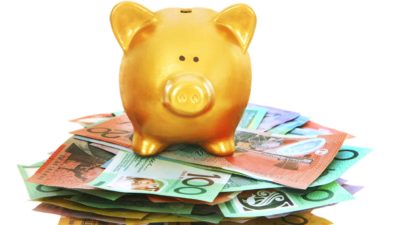You've probably seen the retail sales numbers that were out yesterday.
They were, in a word, ugly.
Sales down 0.4% in March, compared to the results in February.
Every sector other than food retailing was negative. Clothing and footwear sales fell a whopping 4.3%.
In short, the combination of inflation and interest rates are biting. Hard.
The problem is that inflation remains stubbornly high, as we saw last week.
Yes, younger economists are reaching for the dusty old books printed in the 1980s as they consider whether or not Australia might be poised for 'stagflation' – a combination of a sluggish economy and sustained inflation.
Speaking of economists, before yesterday's data, Judo Capital Holdings Ltd (ASX: JDO) 's Warren Hogan – a smart, sober and respected expert – suggested it was possible that the RBA might even need to raise rates this year… and possibly three times.
We are, clearly, in choppy and uncertain economic waters.
So what is an investor to do?
Nothing.
Huh?
Yes, nothing.
See, here's the thing.
The economists – the supposed experts – can't agree what's coming next. They don't agree on the direction, timing, severity or duration of economic changes and interest rate responses.
And even if they did, they wouldn't necessarily be right.
So should an investor be making bets on what to expect in the short-to-medium term?
Clearly, the answer is no.
But I will qualify my 'nothing' answer.
'Nothing… if you've already created the right portfolio'.
A rising tide, as they say, lifts all boats. Which is good for the boats, but it tends to hide a lack of seaworthiness.
And, to then mix my maritime metaphors, as Warren Buffett says, it's only when the time goes out that you see who's been swimming naked.
The economic tide may well (or not) be going out.
Maybe some of the companies in your portfolio are swimming naked.
In other words, perhaps businesses that seemed okay – even great – in the good times aren't quite as good as you think.
Perhaps, if and when the tide goes out, they'll be left wanting.
If you've already done the exercise, and you're comfortable with what you hold – that they are quality companies with good futures and the ability to be resilient in tough times – then there's nothing more you need to do.
But if you haven't?
Then now is the time to really stress test your portfolio.
What if rates rise? What if sales fall, perhaps meaningfully and perhaps for months (or years)?
No, you shouldn't worry about share price volatility. That's not my issue.
But you absolutely should make sure your companies have the ability to sail through any rough waters they may encounter, and survive the experience.
(And make sure the price you're paying is commensurate with that reality, too!)
I'm sorry if this feels a little 'doom and gloom'. For the record, I remain a stubborn long-term optimist, because I fully expect the society, economy and market to be stronger and better in 5, 10 and 20 years' time.
But to benefit from that expectation, your portfolio needs to be structured appropriately. With the right companies, prepared for whatever the market and economy can throw at them.
No, that's not a guarantee. There are no guarantees in life (well, other than death and taxes). But I have a very high conviction that a well-constructed portfolio, full of the best businesses you can find, gives you the best chance of a bright future.
Fool on!









